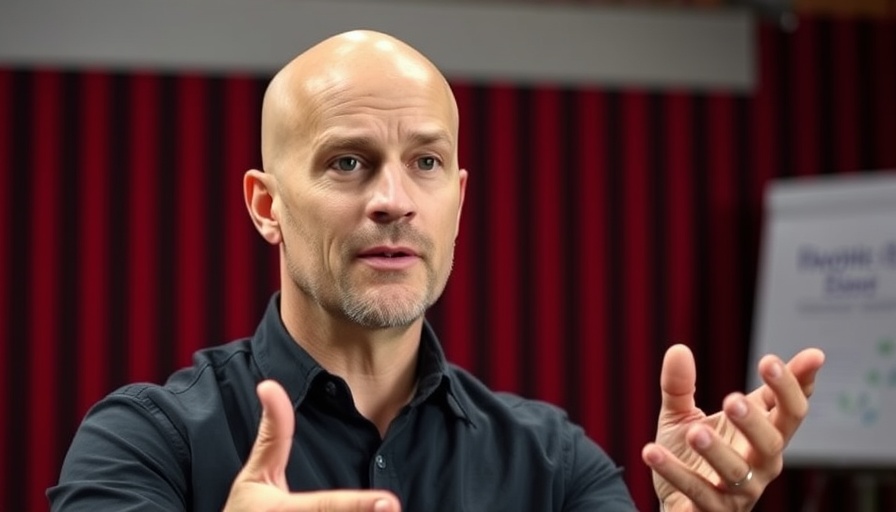
Unlocking Sales Success: A Framework for All
In the rapidly changing landscape of marketing and sales, many individuals still rely on outdated, pushy techniques that often detract from brand value. In Neil Patel’s revealing video, "I’ve Closed $100M+ in Sales, Here’s How to Sell Anything to Anyone," he outlines a seven-step framework designed to transform novices into expert marketers capable of selling anything—from services to software—without resorting to sleazy gimmicks. Here, we explore this pioneering approach to selling and its lasting implications.
In 'I’ve Closed $100M+ in Sales, Here’s How to Sell Anything to Anyone,' Neil Patel shares essential strategies for effective selling, sparking an in-depth analysis of his insights.
Building Trust: The Essential First Step
The cornerstone of effective selling lies not in flashy sales pitches or false urgency but in the establishment of trust. Patel emphasizes the importance of genuine help over immediate profit. By assisting potential clients with no strings attached, you lay the groundwork for a relationship built on respect and goodwill. This altruistic approach not only fosters trust but significantly enhances the likelihood of future business as prospects return when they are ready for your services.
Defining the Ideal Customer or Avatar
Another critical takeaway from Patel’s insights is the necessity of identifying your ideal customer. Without a clear definition of your target audience, sales messages often hit a dead end. By creating an avatar of your prospective client, marketers can tailor their pitches more effectively, ensuring that every message resonates with the right people. This targeted approach amplifies efficiency and increases the probability of conversion.
The Power of Genuine Engagement
Patel further asserts that listening to buyers and understanding their actual pain points is crucial. Prospects often express superficial wants that mask deeper issues. By applying effective listening skills and probing beneath the surface, marketers can offer solutions that address true challenges, thus elevating their position as trusted problem-solvers. This level of engagement not only promotes conversions but builds long-term loyalty.
The Role of Proof and Testimonials
In the decision-making process, evidence plays a pivotal role. Prospects are more likely to buy when they see demonstrable proof of effectiveness. Patel encourages the use of real case studies and testimonials to substantiate claims. Video testimonials, in particular, provide compelling social proof that can ease buyers' concerns. By showcasing success stories, marketers not only highlight capability but also instill the confidence in potential buyers that they are making the right choice.
Persistence: Navigating the Objection Landscape
Many sales representatives abandon the chase after just a couple of rejections, but Patel stresses the importance of persistence. Most buyers require an average of 11 interactions before making a purchase decision. Objections should be viewed as opportunities—not setbacks. By responding to objections effectively and with further support, sales professionals can cultivate relationships that lead to successful conversions over time.
Setting Boundaries: Know When to Walk Away
Understanding the financial health of a deal is vital. Not every sale is worth pursuing, and chasing discouraging leads can hinder growth. It’s essential to maintain clear boundaries in pricing and negotiation, preserving mutual respect while protecting your profitability. When faced with a loss, seeking constructive feedback is crucial, as it can provide invaluable insights for refining sales tactics in future encounters.
Iterative Improvement: The Path to Higher Conversion Rates
The iterative nature of sales means there is always room for growth. By leveraging tools like Gong for feedback and continually adjusting your approach based on both wins and losses, you can enhance your methods and improve your closing rates. Embracing a mindset of constant improvement not only leads to better results but positions you as a responsive and responsible marketer in a competitive field.
In an era where consumer skepticism is high, adopting a framework focused on trust, genuine help, and persistent engagement—as outlined by Neil Patel—can set businesses apart. This holistic approach to selling not only respects the consumer but ultimately leads to sustainable growth and success.
 Add Row
Add Row  Add
Add 




Write A Comment